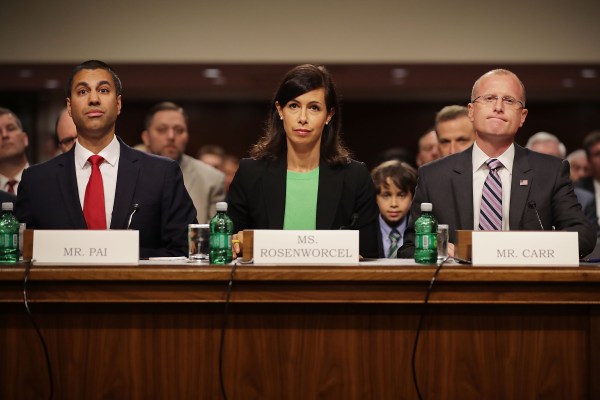FCC Chairwoman Jessica Rosenworcel on Wednesday announced plans to vote on rules restoring net neutrality. The vote, set for April 25, would reinstate 2015 internet rules adopted under President Obama that were subsequently repealed by President Trump’s FCC two years later.
Rosenworcel, a longtime advocate for net neutrality, announced plans to reverse the reversal toward the end of last year, arguing that the Trump administration had, “put the agency on the wrong side of history, the wrong side of the law and the wrong side of the public.”
In a call with the media this morning, a senior FCC official echoed the sentiment, arguing that the COVID-19 pandemic reaffirmed the importance of broadband intent access. The official added that ongoing national security threats have further highlighted the need for strong oversight.
Net neutrality has the rare chance to receive widespread bipartisan support. In 2022, a poll from the University of Maryland’s Program for Public Consultation found that 82% of Democrats, 65% of Republicans and 68% of Independents supported its restoration.
Opponents suggest that the rules disincentivize investment in telecommunication technologies and represent a form of government overreach. South Dakota Senator John Thune called proposals to reinstate such rules, “a heavy-handed government solution – in search of a problem.” The Republican added, “The Biden FCC wants to use the idea of net neutrality as a cover to assert broad new government powers over the internet using rules that were designed for telephone monopolies back during the Great Depression.”
This morning, FCC officials pointed out that investments only increased following the adoption of the rules in 2015. Speaking on behalf of the committee on Wednesday’s call, a representative added that the FCC is not interested in policing speech online — if anything, they argued, such rules increase speech by taking it out of the hands of internet service providers (ISPs).
“After the prior administration abdicated authority over broadband services, the FCC has been handcuffed from acting to fully secure broadband networks, protect consumer data, and ensure the internet remains fast, open, and fair,” Rosenworcel noted in a prepared statement. “A return to the FCC’s overwhelmingly popular and court-approved standard of net neutrality will allow the agency to serve once again as a strong consumer advocate of an open internet.”
More difficult to answer, however, were questions about how to enshrine such rules. Should they pass, it would represent the third reversal of course in as many administrations. Should Trump be reelected in November, how can current officials ensure we don’t live through this all over again? For this, the FCC was not able to provide a satisfactory answer, only that it believed it had firm legal footing and a shared hope that this would be the last time the committee was forced to revisit these rules.
